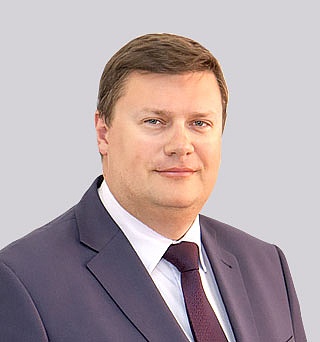New VAT payment procedure for electronic services within the EAEU
10 April 2024From March 2024, the procedure for the VAT payment on electronic services when such services are provided by a taxpayer from one Eurasian Economic Union (EAEU) country to a client from another EAEU country will change significantly.
It is worth reminding that services provided in electronic form (or electronic services, as they are also called) are services provided through an information and telecommunications network, in automatic mode using information technology. Such services traditionally include services of hosting and provision of domain names, services of various electronic exchanges, electronic auctions and trading platforms, services of search engines, placement of advertising on the Internet, provision of access to various content in electronic form (books, videos, computer games), etc. In Russia, the taxation of this type of services with value added tax under special rules has been carried out since 2017 and has received the unofficial name “Google tax” (a term introduced by the press). This taxation procedure applies to foreign companies being providers of electronic services that do not have a branch or representative office in the Russian Federation.
At the same time, the norms of this special taxation procedure have undergone considerable evolution during its existence. Initially, this tax had to be paid solely by the very service providers being foreign companies. Since 2022, the obligation to withhold this tax as tax agents has been imposed on Russian legal entities and individual entrepreneurs who purchase such electronic services from foreign suppliers. Such foreign suppliers of electronic services now pay VAT independently only on the provision of services to Russian individuals.
Similar norms on the collection of VAT on electronic services are also in force in other EAEU member states. Therefore, the innovations that have recently come into force are actually the result of harmonization of the legislation of the EAEU member states.
Until recently, the question of whether the above taxation rules apply to foreign organizations from the EAEU member states remained controversial. However, in December 2022, the EAEU member states signed the Protocol dated December 9, 2022, On Amendments to the Treaty on the Eurasian Economic Union dated May 29, 2014, with Regard to Determining the Procedure for Collecting Indirect Taxes when Providing Services in Electronic Form (hereinafter the “Protocol”). This Protocol was ratified by the Russian Federation with Federal Law No. 328-ФЗ dated July 24, 2023, and entered into force for the Russian Federation since March 4, 2024.
The amendments introduced by the Protocol established the procedure for the collection of VAT when electronic services are provided by a taxpayer from one EAEU country to a legal entity, an individual entrepreneur or an individual from another EAEU country. Now a taxpayer from one EAEU country (for instance, from Kazakhstan) providing services to a client from another EAEU country (for instance, from Russia) must register with the tax authority in the country where the services are provided (that is, in Russia) as a VAT payer in accordance with the rules adopted in that country (if tax registration on this ground is required under the legislation of that country). However, if the taxpayer in the above example from Kazakhstan does not fulfill the obligation to register with the tax authority in Russia, the obligation to calculate and pay VAT should be performed by organizations and individual entrepreneurs who purchase services in electronic form in accordance with the procedure provided for by the legislation of their country. Individuals without an individual entrepreneur status are not subject to such an obligation, since they are not VAT payers in any case.
The list of services to which the new procedure applies is set out in Decision of the Council of the Eurasian Economic Commission No. 97 dated September 27, 2023, On the List of Services in Electronic Form. It should be noted that previously the lists of services in electronic form subject to VAT under this special procedure differed slightly in different EAEU countries. Basically, the list of services approved by the Eurasian Economic Commission repeats the list contained in Article 174.2 of the Tax Code of Russia.
Where services in electronic form are provided through an intermediary registered in the country in which the purchasers are located and participating in settlements with purchasers on the basis of a contract with the service provider, in such a case the intermediary should fulfill the obligation to pay VAT.
In connection with the above, we believe that for organizations providing services in electronic form:
- It is advisable to conduct a kind of “audit” of their clients.
- If such clients are located in the EAEU countries, it is necessary to specify their status (legal entities, individuals with an individual entrepreneur status or without it).
- On the basis of such a status and the requirements of the national tax legislation of the relevant EAEU country on tax registration, it is necessary to determine the need for tax registration in such a country.
- Where necessary, they should amend their agreements and policies that mediate the provision of electronic services, including, where applicable, notifying their customers that they may be obliged to act as VAT agents.











